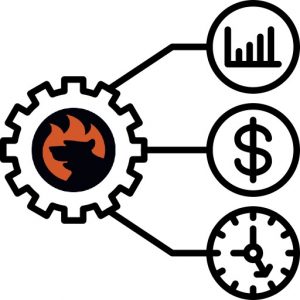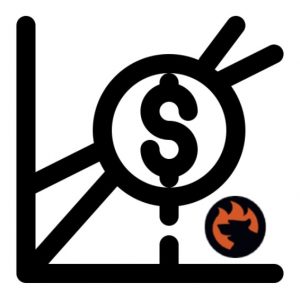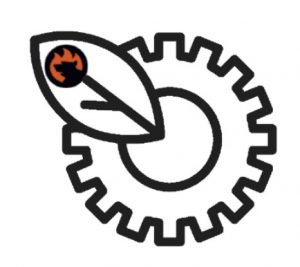10 E-Commerce Strategies To Survive Global Recession 2023-2024

The ongoing Russian war against Ukrainian has affected not only millions of Ukrainians, destroying their homes, killing their friends and relatives, and devouring their usual way of life, but has had far-reaching consequences, including a global economic downturn. This recession has had a significant impact on both businesses and consumers, with many struggling to stay afloat. As consumers adjust their spending habits and businesses face new challenges, the e-commerce sector has been particularly influenced. In this article, we will look at the impact of the global recession on e-commerce, as well as the strategies that businesses can use to weather the economic storm.

Table of contents
- 1 The Main Reason For The Recession
- 2 10 E-Commerce Strategies For The Global Recession Of 2023 & 2024
- 2.1 Improve Business Efficiency
- 2.2 Never Forget About Marketing
- 2.3 Continue Investing in SEO
- 2.4 Prioritise Products With The Highest ROI
- 2.5 Explore Your Customers
- 2.6 Leverage the Existing Audience
- 2.7 Adopt Innovations
- 2.8 Consider Dropshipping Your New Business Model
- 2.9 Implement Better Inventory Control
- 2.10 Always Calculate TCO
- 2.11 Reduce Your Carbon Footprint
- 3 The Aftermath Of The Recession
- 4 Bottom Line
The Main Reason For The Recession
The term permacrisis describes what has been happening in 2022, what’s going on right now in 2023, and what is going to pursue us for years. A prolonged period of insecurity and instability already lasts for almost 12 months since February 24th – the beginning of the Russian full-scale war in Ukraine. And it seems that the recession caused by these tragic events is going to continue in the future. Even after Ukraine and the whole civilized world win this war.
Putin’s ill will, multiplied by the thirsty desires of his villain colleagues and backed by the support of the vast majority of ordinary people, has resulted in Europe’s most significant land war since World War II.
In addition, the world faced the most serious threat of nuclear escalation since the Cuban crisis, as Russian officials and media started to threaten other countries with a nuclear briefcase.
At the same time, the occupation of Ukrainian agricultural lands along with the blockade of Black Sea ports resulted in a tremendous shortage of grain export and other agricultural supplies. All parts of the world have to face the artificial crisis caused by one imperialistic state. And while some countries suffer from soaring food and energy prices that have bolstered the highest inflation rates since the 1980s, others have nothing to eat.
Thus, the Russian war against Ukraine poses the greatest macroeconomic challenge in the modern era of central banking and gradually pushes some communities to starvation. European stability experienced for decades has rapidly disappeared. Such assumptions as a gradual development, nuclear safety, low inflation rates, and so on have all been shaken at the same time. Can the global e-commerce market stay aside?
No. It already experiences the impact of the permacrisis caused by Russia. And don’t forget about the economic recession in China and growing tensions between Beijing and Washington. These two aspects will probably destabilize the situation even more. Here is the list of the core factors that caused the recession:
- As we’ve just mentioned above the Russian war against Ukraine poses the greatest macroeconomic challenge, becoming the number one reason for the recession.
- The ongoing global trade tensions and disputes between major countries, such as the United States and China, leads to a decrease in international trade and investment.
- The rapid increase in consumer debt and lack of consumer confidence causes a decrease in consumer spending.
- A sharp drop in the stock market leads to decreased investment and business confidence.
- The increasing costs of raw materials, energy, and labor results in higher costs for businesses and lower profits.
- The rise of automation and artificial intelligence is associated with job losses and wage stagnation for many workers.
- The growing political and economic instability across various countries leads to increased uncertainty and reduced investment.
- The ongoing impact of the COVID-19 pandemic forces many businesses to face reduced revenue and increased costs due to social distancing measures and lockdowns.
These factors combined led to a global recession in 2023 and 2024, with many businesses facing decreased revenue, lower profits, and decreased consumer spending.
10 E-Commerce Strategies For The Global Recession Of 2023 & 2024
Below we shed light on how to prepare your online business for the worst. You will learn what to do to to keep your e-commerce storefront operating successfully during a global recession predicted for 2023 and 2024. We shed light on the most urgent steps that should be taken to prevent you from getting in trouble.
Improve Business Efficiency

You can improve your business efficiency by keeping your overheads low. When sales are sluggish, your fixed overhead costs can be devastating. If your revenue has dropped, for instance, renting a warehouse may drain your budget. What to do in this particular situation? Consider adopting the dropshipping model!
In a recession, businesses with high overhead costs frequently fail first because they are unable to cover all of their expenditures. Therefore, you must be resourceful and make an effort to keep your expenses low during a crisis. This might entail downsizing your office space, reducing the size of your staff, and looking at your technology or software again to find more affordable alternatives. At the same time, try to avoid sawing off the branch you’re sitting on.
Never Forget About Marketing

If you rely on marketing (and we know you do), curtailing marketing efforts to reduce your expenditures is like stopping drinking to lose weight. Of course, you may achieve your goals in short term but for what sake?
If you think that marketers are a luxury rather than a necessity, you are mistaken. Even during the most terrible recession, businesses need marketing. A successful marketing strategy will help you increase visibility and stand out from your competitors.
And if you can no longer afford a fully-featured in-house team, outsourcing is always at your disposal. Thousands of talented experts all over the globe can help you with your marketing efforts. You can find agencies with distinct price tags that can satisfy even the most demanding entrepreneurs.
Also, you can always adjust your marketing strategy, following new challenges. Suppose your email marketing no longer brings revenue. Why should you invest in it, especially when your digital advertising works much better, bringing in the most revenue?
So, if you run an e-commerce business during a global recession of 2023, keep the following things in mind to stay afloat:
- Never stop doing marketing.
- Reduce the size of your marketing team or rely on outsourcing if necessary.
- Adjust your marketing strategy: invest in efficient strategies and abandon useless tools.
- Continue exploring new possibilities.
Continue Investing in SEO

Your SEO budget is another area that shouldn’t be cut. Putting money into a strong SEO strategy can keep your e-commerce company afloat in difficult times. Especially considering the fact that in the long run, organic traffic (the one associated with SEO) is frequently more valuable than paid traffic. Additionally, it is a long-term tactic that will help your company even after the recession. Consider these few SEO tactics as a part of a much bigger SEO strategy:
- Focus on keyword research and determining the search terms that customers are using to find your products.
- Develop content for your website centered around those keywords.
- Create links to your website from authority sites.
- Track the progress of your SEO strategy.
Prioritise Products With The Highest ROI

As we’ve mentioned above, it is not practical to keep large inventories during a downturn, especially since only a third of the products typically generate revenue. Instead, you should concentrate on promoting the goods that you know will sell well and generate the highest profits.
The level of demand for the product is another important factor. Chances are people will be willing to keep buying a product if there is high demand for it, even during a recession.
- Prioritise products with the highest ROI.
- Reduce your warehouse expenditures associated with the product with the lowest ROI.
- Invest in marketing strategies associated with high-ROI products.
- Reduce your marketing expenditures associated with the product with the lowest ROI.
Explore Your Customers

No matter how deep the recession is: you always need to identify the needs of your current and potential customers. If you offer the experience and products they want, your e-commerce business keeps rolling.
If you are confident that you know your buyers like the back of your hand, don’t let this desperate feeling fool you. The rising economic uncertainty around the recession more than everything impacts spending habits. Thus, customers significantly lessen their purchases of discretionary products. It means that they no longer afford to buy luxury items or go on international holidays as they used to. It doesn’t mean that they stop doing that, but their budget structure changes significantly with essential products, such as groceries, fuel, utility service, and other crucial well-being items, dominating over discretionary products.
Also, cross-sell, up-sell, and recommended product sections may be less efficient since they are associated with additional unwanted expenditures. Unless you propose really necessary items. It means that you have to think about building value-driven relationships rather than transactional ones.
- Explore your buyers’ lifetime value to determine how much to spend on customer acquisition.
- Discover how the recession impacts their needs and shopping habits.
- Adjust your e-commerce business to this new realm.
Leverage the Existing Audience

According to some specialists, gaining new customers is 5 times more expensive than retaining your current clientele. Therefore, if you already have a loyal customer base, don’t be afraid to use the following tricks:
- Make sure to offer excellent customer service.
- Personalize your messaging.
- Integrate a loyalty program with your website to achieve this goal.
- Start cross-selling items to encourage customers to make repeat purchases.
- Add low-cost items to boost average order value (AOV) and upsell opportunities.
- Add coupon codes for the next purchases.
- Use retargeting ads to keep existing clients interested in your e-commerce business.
Adopt Innovations

Both augmented reality and machine learning have now produced practical applications for retail trade. The selfie filters on Instagram were first used for amusement but quickly gained popularity in e-commerce for augmented-reality shopping. For instance, Lenskart.com is a well-known online store where customers can try on eyewear and sunglasses via their smartphones or laptops.
However, such crazy features are not suitable for everyone. For instance, you sell car parts. How to adopt augmented reality for your online storefront? It is quite hard to imagine. But there are technology innovations that may improve the performance of your e-commerce website and, consequently, the customer experience it offers. As a result, your store visitors will be more satisfied with what they get on your online storefront. You can implement AI-based chatbots to help potential buyers with their inquiries, and so on.
- Think about what innovations can help you improve your customer experience, admin routine, or control over various business processes.
- Calculate whether it is possible to implement them, considering other budget items.
- Find a reliable partner to adopt innovations or use your in-house team if you have the corresponding specialists.
Consider Dropshipping Your New Business Model

We already mentioned that dropshipping can reduce your expenditures and increase business efficiency because stockpiling more inventory serves no purpose if you have doubts about its ability to sell. Furthermore, it may be wiser to dropship even high-ROI products from suppliers to customers rather than keeping any inventory on hand when a recession is in effect.
Dropshipping has always given small-scale merchants numerous opportunities to operate their entire e-commerce facilities virtually. And now, during the recession of 2023 and 2024, this business model lets companies slightly reduce the burden, concentrating more on their marketing efforts and enhancing the online shopping experience.
- Explore dropshipping possibilities for your business.
- Find new reliable partners.
- Integrate dropshipping model into your e-commerce website.
Implement Better Inventory Control

Implementing better inventory control in addition to dropshipping or instead of it is also a good idea for all e-commerce companies not only during a crisis but in peaceful times. Businesses can undoubtedly experience losses due to slow sales, an accumulation of unsold goods, and, as a result, rising overhead expenses.
Therefore, it is highly recommended to maintain a strict check on all products. In addition to high-ROI goods, you should also learn which items move easily and quickly and which products are sold slowly but are still crucial.
- Use an inventory management system to audit and monitor your merchandise count.
- Keep all the data in sync across all the sales channels to prevent both overstocking and backorder issues.
- Create a ratio of goods: you need more items of fast-selling products and fewer items of those products that are sold slowly but are still crucial.
- It is also a good idea to display product inventory count on your ecommerce website to accelerate sales by instilling a sense of urgency on product pages.
Always Calculate TCO

Calculating the Total Cost of Ownership can help your e-commerce business during a recession in several ways:
- You can get a clear understanding of the true costs of your products and services. This information can help you make informed decisions about which products and services to keep, cut, or optimize.
- Identifying the hidden costs of ownership, such as maintenance, repair, and upgrades, can reduce your operating costs and improve your bottom line.
- A clear understanding of your TCO provides the ability to create a more accurate budget and better plan for future expenses, managing your cash flow during the recession more efficiently.
- Calculating TCO and making informed decisions usually helps provide products and services at a lower cost, so you can increase customer satisfaction and loyalty. This can help you maintain and grow your customer base during the recession.
Reduce Your Carbon Footprint

Reducing your carbon footprint can help your e-commerce business in several ways during the recession. The most evident way to do that is to reduce your energy consumption. Also, you can switch to a “green” hosting provider. In combination with other improvements, it can lead to the following benefits that make your e-commerce business more resilient to future environmental and economic challenges:
- By reducing energy consumption, you can decrease your business costs. This can help keep your business running during tough economic times.
- By demonstrating your commitment to reducing your carbon footprint, you can increase the value of your brand and make it more attractive to consumers. This can help increase sales during the recession.
- Making eco-friendly choices helps you improve your public relations and reputation. This can lead to increased brand loyalty and more customers during the recession.
The Aftermath Of The Recession
The aftermath of the recession can have far-reaching consequences for e-commerce businesses, and the economy as a whole. Some of the possible consequences include:
- Increased unemployment: Businesses all over the globe may be forced to lay off employees due to decreased revenue and profits, leading to higher levels of unemployment.
- Decreased consumer spending: Consumers worldwide may be hesitant to spend money during and after a recession, leading to decreased demand for goods and services.
- Bank failures & financial instability: The possible failure of several large banks could lead to decreased consumer confidence and reduced investment.
- Decreased business investment: Businesses may be hesitant to invest in new projects and initiatives, especially more risky ones, during and after a recession, leading to decreased economic growth.
- Increased poverty and inequality: The recession could lead to decreased wages and increased poverty, particularly among low-income employees.
- Changes in consumer behavior: Consumers may change their spending habits during and after a recession, causing long-term economical changes.
- Changes in government policy: Governments may respond to the recession by implementing new policies and regulations, including increased spending and taxes.
These aftermaths can have long-lasting impacts on e-commerce and the lives of individuals. It will take time for the economy to fully recover. Luckily, you can already start preparations to make your business more flexible, stronger, and ready for inevitable changes.
Bottom Line
As you can see, recessions often come with negative consequences for businesses, but the e-commerce sector can benefit from them in several ways. During a downturn, consumers are more likely to look for ways to save money and turn to online shopping as a cost-effective solution. This shift to digital rather than brick-and-mortar storefronts can result in an increase in e-commerce sales.
Online businesses are also well positioned to benefit from a recession as they have lower overhead costs compared to traditional brick-and-mortar retailers. This allows them to offer products and services at a lower cost, making them more competitive during tough economic times. Additionally, e-commerce companies can reach a larger audience, increasing the chances of attracting new customers who are looking for bargains and deals.
In conclusion, a recession can have a positive impact on the e-commerce sector. However, you cannot rely on the slump’s possible advantages to keep your e-commerce enterprise afloat. These factors are not enough. So, follow the recommendations above and always look for additional ways to push your business to a new level, avoiding the challenges of these difficult times.









